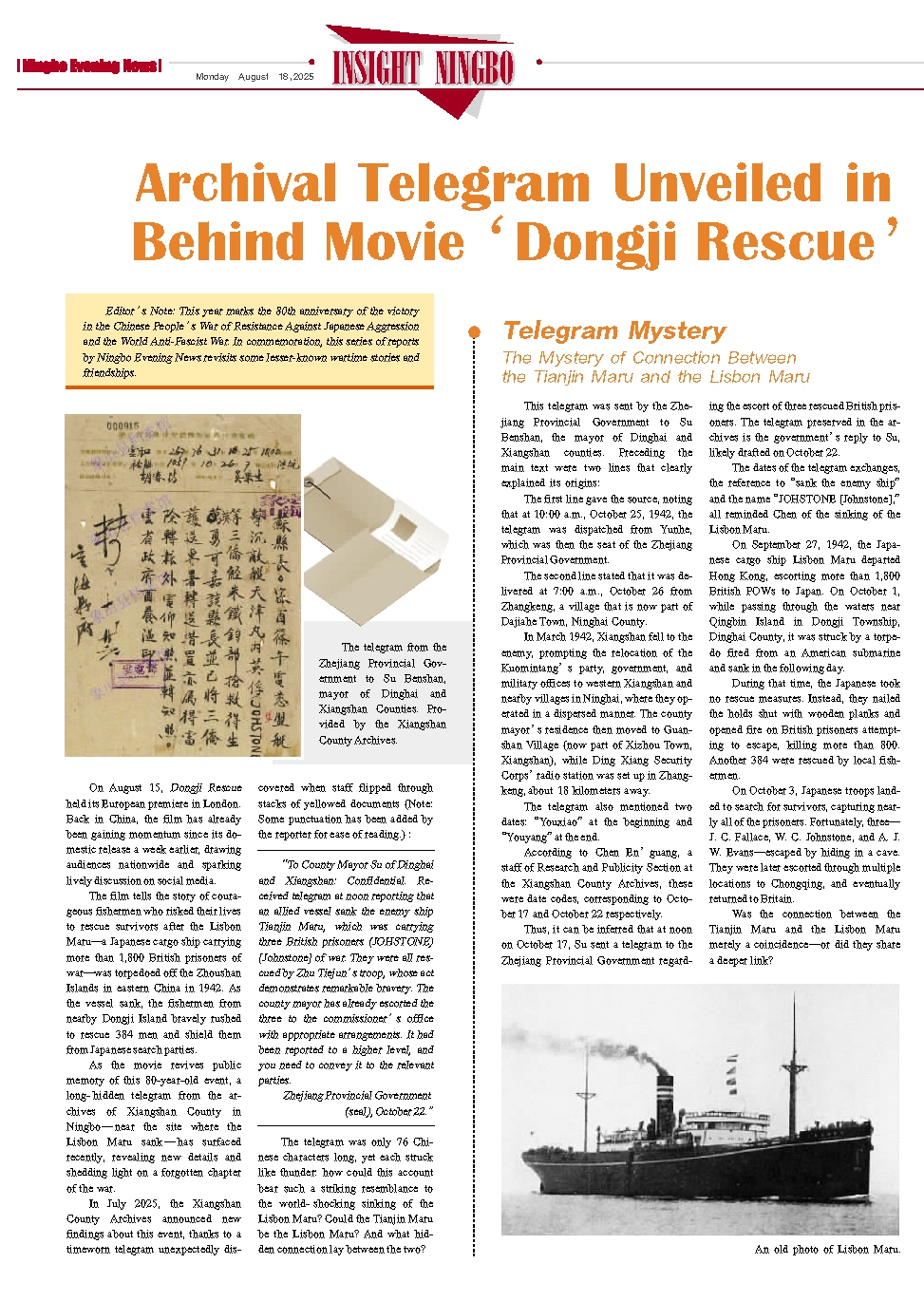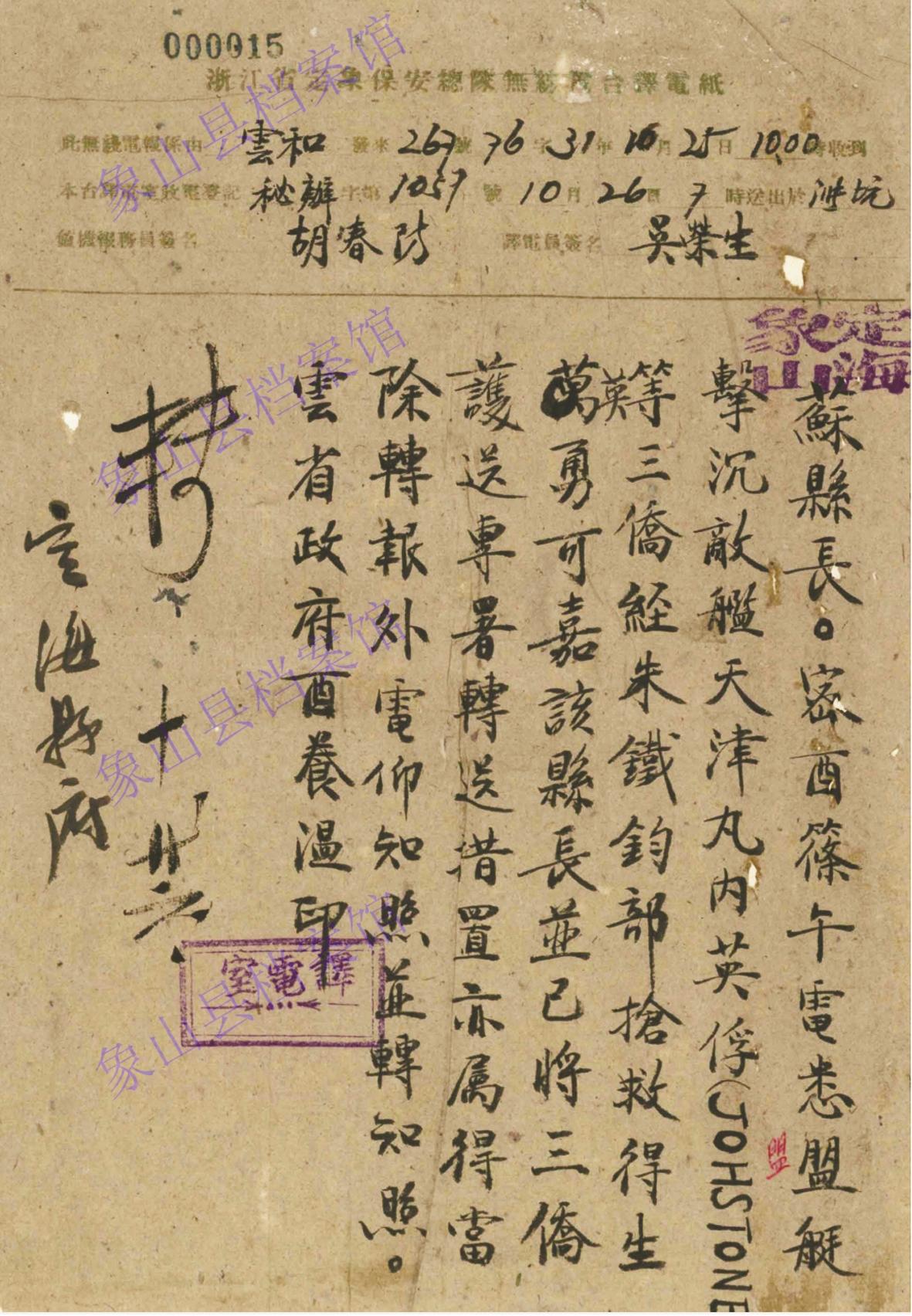Editor’s Note: This year marks the 80th anniversary of the victory in the Chinese People’s War of Resistance Against Japanese Aggression and the World Anti-Fascist War. In commemoration, this series of reports by Ningbo Evening News revisits some lesser-known wartime stories and friendships.
On August 15, Dongji Rescue held its European premiere in London. Back in China, the film has already been gaining momentum since its domestic release a week earlier, drawing audiences nationwide and sparking lively discussion on social media.
The film tells the story of courageous fishermen who risked their lives to rescue survivors after the Lisbon Maru—a Japanese cargo ship carrying more than 1,800 British prisoners of war—was torpedoed off the Zhoushan Islands in eastern China in 1942. As the vessel sank, the fishermen from nearby Dongji Island bravely rushed to rescue 384 men and shield them from Japanese search parties.
As the movie revives public memory of this 80-year-old event, a long-hidden telegram from the archives of Xiangshan County in Ningbo—near the site where the Lisbon Maru sank—has surfaced recently, revealing new details and shedding light on a forgotten chapter of the war.
In July 2025, the Xiangshan County Archives announced new findings about this event, thanks to a timeworn telegram unexpectedly discovered when staff flipped through stacks of yellowed documents (Note: Some punctuation has been added by the reporter for ease of reading.) :
“To County Mayor Su of Dinghai and Xiangshan: Confidential. Received telegram at noon reporting that an allied vessel sank the enemy ship Tianjin Maru, which was carrying three British prisoners (JOHSTONE) [Johnstone] of war. They were all rescued by Zhu Tiejun’s troop, whose act demonstrates remarkable bravery. The county mayor has already escorted the three to the commissioner’s office with appropriate arrangements. It had been reported to a higher level, and you need to convey it to the relevant parties.
Zhejiang Provincial Government (seal), October 22.”
The telegram was only 76 Chinese characters long, yet each struck like thunder: how could this account bear such a striking resemblance to the world-shocking sinking of the Lisbon Maru? Could the Tianjin Maru be the Lisbon Maru? And what hidden connection lay between the two?



